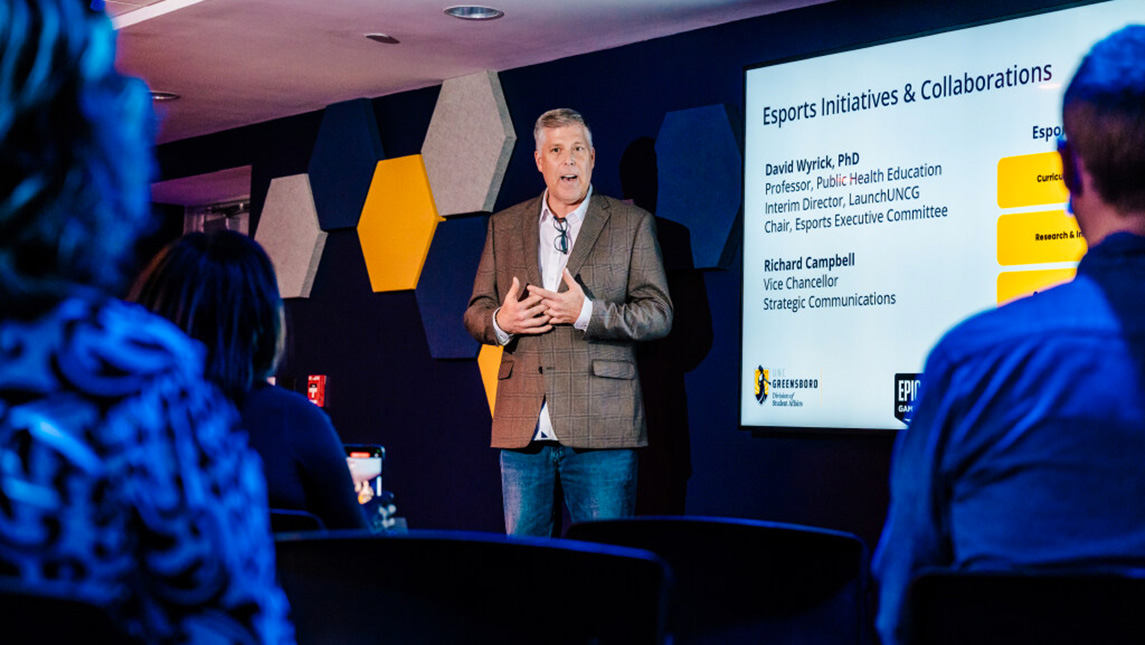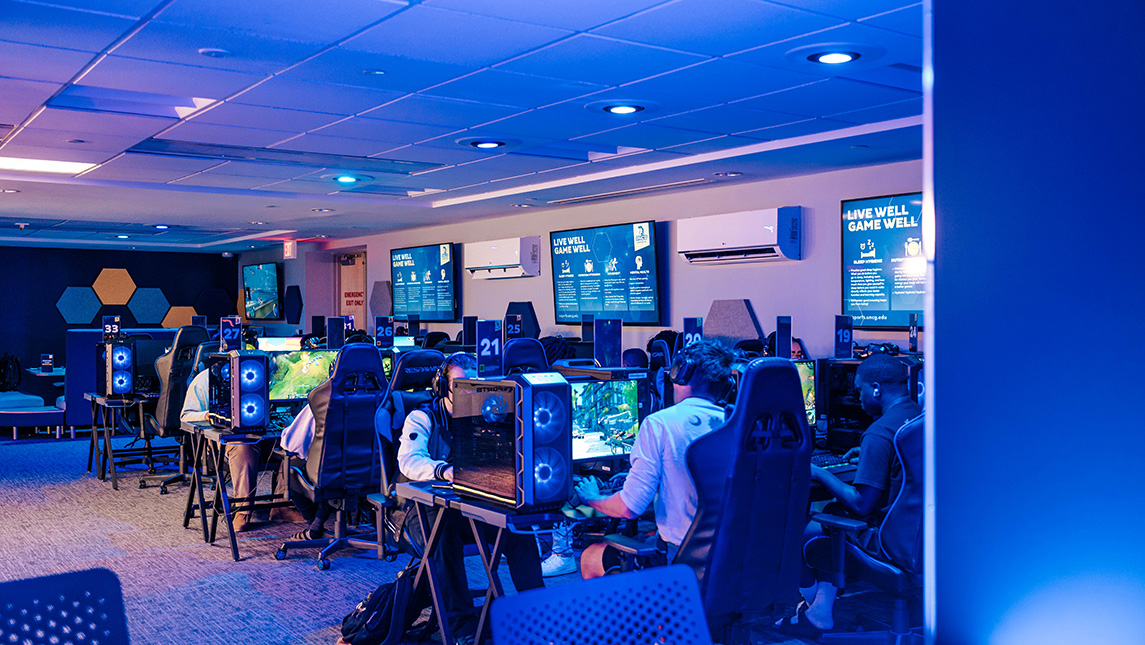Esports – competitive, multiplayer video gaming with spectators – is on the rise.
To put it in perspective for the non-gamers, about 175 million people play video games in the United States alone: that’s about 33 times more than the number of Americans who play football. Now, with the global esports market predicted to reach $1 billion in revenue, U.S. esports viewer numbers climbing to 29.6 million, and cash prizes up for grabs, more and more American gamers are entering the arena.
UNCG has joined the collegiate esports movement with a new $2.4 million arena, but students aren’t the only ones in the game. Building on a strong portfolio of athlete health and wellness research, UNCG scientists are also stepping out onto the field to study gamer health and wellness.
“Collegiate esports athletes compete at a very high level that requires hours of physical, mental, and game-specific skills training,” says public health education professor David Wyrick. “This can result in pressures and environments that challenge their well-being.”
Dr. Wyrick, who has led over 20 NIH-funded studies related to behavioral interventions, launched the UNCG Center for Athlete Well-Being for research on the physical and mental health of collegiate student-athletes. Through the center, Wyrick’s spinoff company Prevention Strategies, LLC, and partnerships with major players in the industry – the NCAA, the NFL, and the U.S. Center for Safe Sport to name just a few – Wyrick and his team take their student-athlete findings into the classroom and onto the court.
“Maximizing public health impact is my priority,” he says. “Our commercialization efforts also inform the scholarship, leading to more manuscripts and grant proposals. So, it’s really this 360 degree cycle.”

Now, Wyrick and his team are taking their expertise into the world of esports student-athlete health – an area where they say there is a strong need for foundational research.
The researchers just launched a survey called The Esports Athlete Mental well-being Study – or TEAMS – to better understand the scope of esports athlete wellness. The groundbreaking study is led by Prevention Strategies’ experts Dr. Annie Kearns Davoren – a former NCAA consultant – and Dr. Stephen Hebard.
“What we’re doing with TEAMS is completely novel,” Davoren says. We’re taking this 1000-foot view of the esports student-athlete participant.”
The survey, the largest so far of its kind, aims to gather data from over 1000 participants and asks a broad range of questions about athletes’ perceptions and experiences. Topics include academic experiences, relationships with coaches, mental health, the gaming environment, and substance abuse.
“We need to know more about this population and what their unique needs are,” Hebard says.
They hope to translate their findings into behavioral interventions and education that can help gamers. “Once you start making data-driven decisions, things really start happening and changing for the better,” Davoren says.
For example, in their recently completed pilot survey of about 200 collegiate esports athletes, the researchers found preliminary evidence that women are more likely to avoid playing specific titles and participating in voice chat – possibly due to harassment. Future interventions, they say, could be directed at fostering pro-social attitudes among male gamers and a more welcoming and inclusive game lobby – the staging area where players gather before a game.
These types of steps related to behavioral-change aren’t pie-in-the-sky: there’s momentum and interest to positively impact the esports environment.
“Video games and competitive gaming are really accessible in a way that traditional sports aren’t and there’s a massive investment in esports right now,” Hebard says. “Our hope is that the data we’re collecting can help make the argument to invest in the wellbeing of esports athletes.”
The survey is only the beginning. For example, the researchers have already begun adapting the NCAA Coaches Assist program – which Prevention Strategies developed to train coaches on empathetic communication – for esports coaching.
“We’re just getting started,” says Wyrick. “Esports is the most exciting thing I’ve seen in my career to help push translational research and innovation forward.”
Story by Rachel Damiani & Sangeetha Shivaji
Photography by Sean Norona, University Communications



